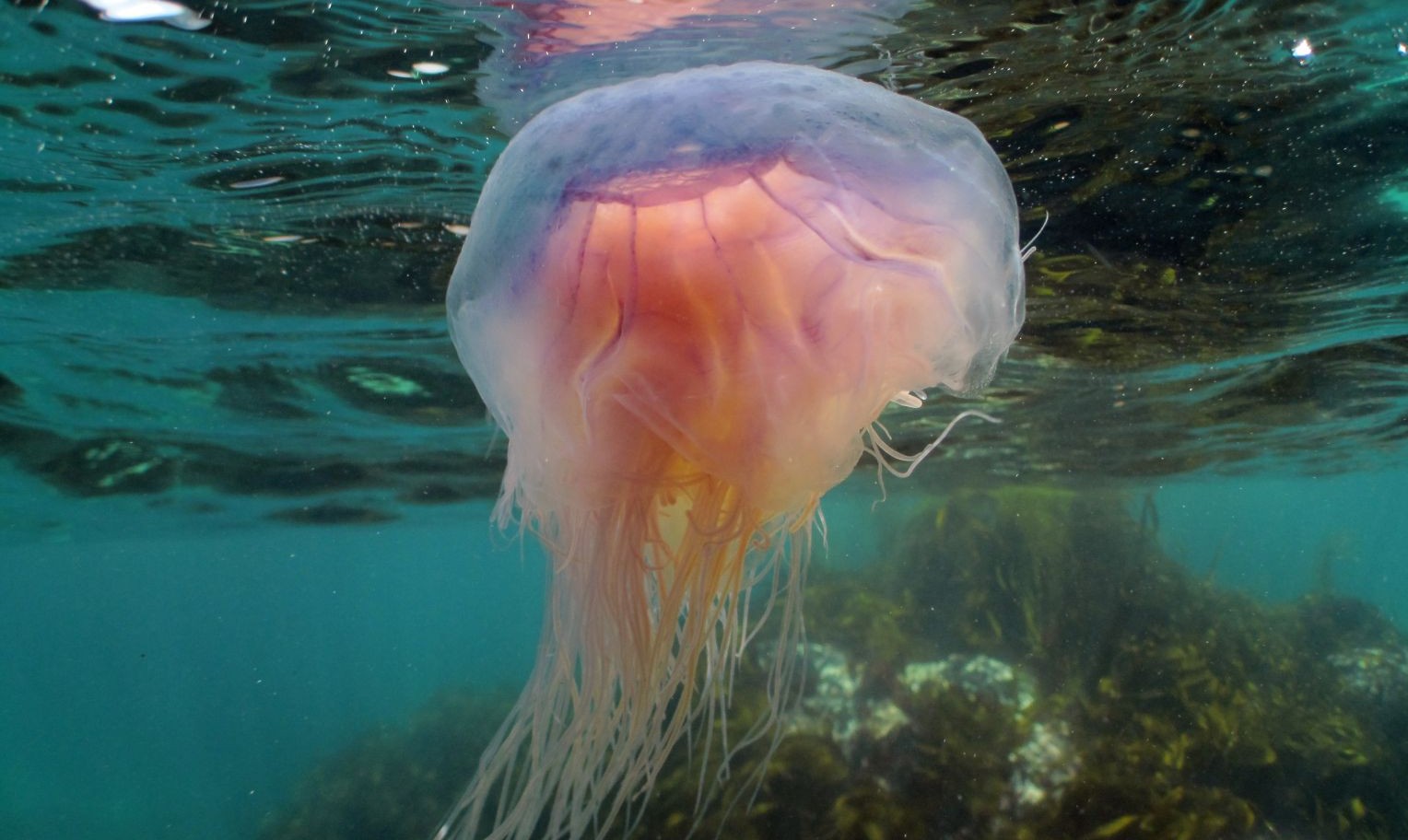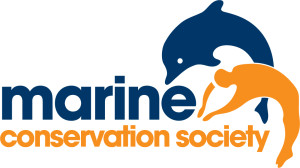Marine Life & Conservation
Moon, compass, blue and lion’s mane – it’s a blooming good time for jellyfish

Beach users urged to report jellyfish finds on UK beaches
 The Marine Conservation Society (MCS), the UK’s leading marine charity, says the number of jellyfish blooms – when jellies mass together – in UK coastal waters is on the increase as our seas start to warm up.
The Marine Conservation Society (MCS), the UK’s leading marine charity, says the number of jellyfish blooms – when jellies mass together – in UK coastal waters is on the increase as our seas start to warm up.
Every summer hundreds of reports of jellyfish sightings are made to the MCS National Jellyfish Survey – now in its 14th year. The survey is providing valuable information about where and when jellyfish occur in UK seas amid global reports of a rise in jellyfish numbers.
Up until July, it’s been a relatively quiet year for jellyfish reports, unlike the last two years when record numbers of barrel jellyfish were reported around UK seas through the spring and summer.
Dr Peter Richardson, Head of Biodiversity and Fisheries at the Marine Conservation Society, said: “There’s evidence that jellyfish numbers are increasing in some parts of the world, including UK seas. Some scientists argue that jellyfish numbers increase and then decrease normally every 20 years or so; however, others believe and these increases are linked to factors such as pollution, over-fishing and possibly climate change. The MCS jellyfish survey helps provide some of the information we need to understand more about these ancient creatures.”
Although the charity has received reports of barrel jellyfish sightings, the number of blue and moon jellies are starting to pick up as the waters around the UK warm up, with mass strandings of both species in South West England and Wales.
Lion’s mane jellyfish – which have a powerful sting – have also been reported from beaches in Scotland and around the Irish Sea. MCS says that anyone who comes across a jellyfish at sea or on the beach should look but don’t touch, but report their sightings at www.mcsuk.org.
Jellies to look out for in UK waters:
Moon (Aurelia aurita)
Most widespread species, occurring all around the UK coast from May.
Blue (Cyanea lamarkii)
Less common than the moon but can turn up anywhere.
Barrel (Rhizostoma octopus)
Can grow up to 1 metre in diameter and weigh up to 40kgs, totally harmless despite its size and is largely limited to the Irish Sea and adjacent waters to the north. Can be spotted all year round, even in winter, but blooms tend to start in March.
Lion’s mane (Cyanea capillata)
Has the most powerful and painful sting of the UK species. It blooms during the summer but is rarely seen south of the Irish Sea (west coast), or south of Northumberland (east coast), with most reports coming from Scottish waters.
Compass (Chrysaora hysoscella)
Has bizarre compass-like markings and is found throughout the UK coast.
Mauve stingers (Pelagia noctiluca)
Occasionally recorded from the southwest in early spring, but large numbers were reported off Britain’s west coast during November 2007, 2008 & 2009.
Portuguese Man-of-War (Physalia physalia)
Rare in UK waters but MCS received many reports from beaches in south-west England in the summers of 2007, 2008 and 2009.
“We still know relatively little about jellyfish and what drives changes in their numbers, so reporting even a single one can help. One thing we do know is that Leatherback turtles travel to UK waters to feed on jellyfish and are usually recorded along the west coast of the UK between May and October – this year we’ve already heard of sightings from the south west of England and the Irish Sea.” Says Dr Richardson.
Marine Life & Conservation
Double Bubble for Basking Sharks

 The Shark Trust is excited to announce that, for two more days only, all donations, large or small, will be doubled in the Big Give Green Match Fund!
The Shark Trust is excited to announce that, for two more days only, all donations, large or small, will be doubled in the Big Give Green Match Fund!
Donate to Basking in Nature: Sighting Giants
The Shark Trust is hoping to raise £10k which will be doubled to £20k. This will go towards Basking in Nature: Sighting Giants. And they need YOUR help to reach they’re goal.
The Shark Trust’s citizen science project is to monitor and assess basking sharks through sightings; encouraging data collection, community engagement, and promoting nature accessibility. This initiative aims to enhance health and wellbeing by fostering a deeper connection with British Sharks.
Campaign Aims
- Increase citizen science reporting of Basking Sharks and other shark sightings to help inform shark and ray conservation.
- Provide educational talks about the diverse range of sharks and rays in British waters and accessible identification guides!
- Create engaging and fun information panels on how to ID the amazing sharks and rays we have on our doorstep! These can be used on coastal paths around the Southwest. With activities and information on how you can make a difference for sharks and rays!
- Promote mental wellbeing through increasing time in nature and discovering the wonders beneath the waves!
Donate, and double your impact. Click Here
Marine Life & Conservation
Leading UK-based shark conservation charity, the Shark Trust, is delighted to announce tour operator Diverse Travel as a Corporate Patron

 Corporate Patrons provide a valuable boost to the work of The Shark Trust. The Trust team works globally to safeguard the future of sharks, and their close cousins, the skates and rays, engaging with a global network of scientists, policymakers, conservation professionals, businesses and supporters to further shark conservation.
Corporate Patrons provide a valuable boost to the work of The Shark Trust. The Trust team works globally to safeguard the future of sharks, and their close cousins, the skates and rays, engaging with a global network of scientists, policymakers, conservation professionals, businesses and supporters to further shark conservation.
Specialist tour operator Diverse Travel has operated since 2014 and is committed to offering its guests high quality, sustainable scuba diving holidays worldwide. Working together with the Shark Trust will enable both organisations to widen engagement and encourage divers and snorkellers to actively get involved in shark conservation.
“Sharks are truly at the heart of every diver and at Diverse Travel, we absolutely share that passion. There is nothing like seeing a shark in the wild – it’s a moment that stays with you forever!” says Holly Bredin, Sales & Marketing Manager, Diverse Travel.
“We’re delighted to celebrate our 10th year of business by becoming a Corporate Patron of the Shark Trust. This is an exciting partnership for Diverse and our guests. We will be donating on behalf of every person who books a holiday with us to contribute towards their vital shark conservation initiatives around the world. We will also be working together with the Trust to inspire divers, snorkellers and other travellers to take an active role – at home and abroad – in citizen science projects and other activities.”
Paul Cox, CEO of The Shark Trust, said:
“It’s an exciting partnership and we’re thrilled to be working with Diverse Travel to enable more divers and travellers to get involved with sharks and shark conservation. Sharks face considerable conservation challenges but, through collaboration and collective action, we can secure a brighter future for sharks and their ocean home. This new partnership takes us one more valuable step towards that goal.”
For more information about the Shark Trust visit their website here.
For more about Diverse Travel click here.
-

 News3 months ago
News3 months agoHone your underwater photography skills with Alphamarine Photography at Red Sea Diving Safari in March
-

 News2 months ago
News2 months agoCapturing Critters in Lembeh Underwater Photography Workshop 2024: Event Roundup
-

 Marine Life & Conservation Blogs2 months ago
Marine Life & Conservation Blogs2 months agoCreature Feature: Swell Sharks
-

 Blogs2 months ago
Blogs2 months agoMurex Resorts: Passport to Paradise!
-

 Blogs2 months ago
Blogs2 months agoDiver Discovering Whale Skeletons Beneath Ice Judged World’s Best Underwater Photograph
-

 Gear Reviews2 months ago
Gear Reviews2 months agoGear Review: Oceanic+ Dive Housing for iPhone
-

 Marine Life & Conservation2 months ago
Marine Life & Conservation2 months agoSave the Manatee Club launches brand new webcams at Silver Springs State Park, Florida
-

 News3 months ago
News3 months agoWorld’s Best Underwater Photographers Unveil Breathtaking Images at World Shootout 2023






